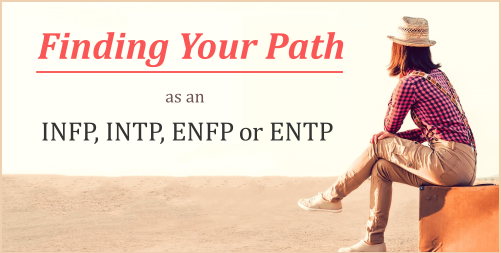What is the best way to live my life? What mode of living will maximize happiness and fulfillment? What role does personality type play in “the good life.”
As a species, we have yet to achieve consensus regarding the best way to live, be it individually or collectively. Indeed, some people prefer to approach such matters from a religious or philosophical perspective, others from a sociopolitical angle, and still others from a psychological vantage point.
In this post, we will examine these key issues through the lens of the sensing and intuition functions (i.e., Se, Si, Ni, Ne), including how these functions link up with various ethics and moral philosophies. Doing so should help us better understand ourselves and others, perhaps even sow the seeds for a richer life.

Before analyzing the ethical proclivities of each function, we should remind ourselves that every personality type uses four functions. And because each function possesses its own set of needs and desires, a personality type is, in effect, a sort of community, one which must reconcile a host of competing voices. This diversity of functions can beget different presentations among individuals of the same personality type according to which function is demanding or being granted the most attention. Thus, even persons of the same type may disagree regarding which path will lead to the good life.
Finally, we know that each personality type experiences a sort of tug-of-war, or what Jung dubbed an enantiodromia, between its dominant and inferior function. For this reason, individuals typically incorporate aspects of both of these functions, not to mention the auxiliary and tertiary functions, into their self-understanding. The fact that we instinctively build our identity on multiple functions points to the psyche’s desire for richness and wholeness. However, this propensity may also keep individuals from fully resonating with analyses of their type’s dominant function apart from their other functions. Foreseeing this as a possibility for this post, I have included examples of how the inferior or other functions might modify or temper the ethical disposition of the dominant.
Extraverted Sensing (Se)
Types who use Extraverted Sensing (Se) as their dominant function (i.e., ESFP & ESTP) commonly adopt an “eat, drink, and be merry” approach to life. Naturally optimistic and easygoing, they rarely take life or themselves too seriously. At minimum, these types teach us how to live in the moment and appreciate life’s simpler pleasures.
Philosophically, an Se lifestyle can be associated with the ethic of hedonism. According to Wikipedia, “A hedonist strives to maximize net pleasure (pleasure minus pain).” Se can also be associated with physical work or leisure activities that involve hands-on engagement with the environment (e.g., athletics, manual labor, artisanship, etc.). And although we usually don’t associate physical work with hedonism, we know that SP types can derive ample pleasure from hands-on activities.
While some ESPs seem to own and embrace their Se appetites, others try to distance themselves from such desires. Some may do so in response to religious teachings that speak against “carnal pleasures” or quick gratification, while others may be heeding the voice of another function (e.g., Ni) which cautions against unbridled hedonism.
Se is also oriented to the physical appearance of things, thus aligning with philosophies like aestheticism which emphasize beauty or appearance over competing values such as truth or morality. In many ways, aestheticism comports with the “style over substance” mindset that permeates much of modern capitalism.
Under the influence of their inferior function, Introverted Intuition (Ni), ESPs may disavow aestheticism as well. In discussing their relationships, for instance, they may downplay the importance of money or physical attractiveness (Se), instead emphasizing the depth, substance, or spiritual qualities (Ni) of their partner.
It almost goes without saying that unchecked hedonism or aestheticism is unlikely to bring enduring life satisfaction. However, there are plenty of reasons to incorporate some measure of physical and aesthetic pleasures, as well as openness to “living in the moment,” into one’s recipe for the good life.
Introverted Intuition (Ni)
While Introverted Intuition (Ni) is Se’s typological opposite, these two functions always co-occur in SP and NJ types. Consequently, both SPs and NJs experience some measure of tension between the contrasting values / philosophies of Ni and Se.
As discussed in my book, My True Type, Ni concerns itself with depth and essences. Inherently distrustful of surface appearances (Se), it strives to apprehend patterns and causalities underlying sense data. INTJ physicists, for example, work to identify and understand physical laws that cannot be discerned through the five senses, patterns that may even contradict our natural sense of how the world works (e.g., quantum mechanics). Similarly, INFJs may perceive subtle or paradoxical patterns in human behavior that routinely go unnoticed by other types.
One way of understanding the ethics of Ni is by contrasting it with Se. Namely, while Se seeks stimulation through novel sensory experiences, Ni aims to incorporate all available data, include extant knowledge about the world, to formulate impressions and theories of optimal living. Moreover, because INJs are less impulsive than ESPs, they require more time to make decisions. Rarely will INJs make an important decision without first reflecting on the “big picture,” including their personal worldview and philosophy of life. Granted, this partly depends on the degree to which INJs have developed their judging functions (i.e., thinking / feeling). As discussed in my recent post, Three Roles of the INFJ, those operating primarily in perceiving mode (Ni-Se) may lack some measure of judgment or moral concern. Such individuals may also be more impulsive and less principled than other INJs.
INJs who bring a big picture / theoretical approach to ethics will typically appear more rational, measured, and cautious than their ESP counterparts. As discussed in Elaine’s post, How INJs Approach their Body & Physical Needs, because Se is INJs’ inferior function, these types often shy away from physical risk-taking, preferring to “play it safe.” In extreme cases, they may even act as renunciants, turning to physical asceticism as a means of augmenting their intellectual or spiritual life (Ni).
Most INJs herald the importance of living a balanced / stable life; in fact, this ethic seems to cut across all J types. It is therefore not uncommon to find them criticizing the behavior of P types (especially EPs) as erratic, unstable, or unsustainable.
Operating largely as detached observers or interpreters of life, INJs can struggle with the sense that they aren’t truly living. This can be understood as the siren call of their inferior Se, which beckons them toward a more concrete and spontaneous life. The voice of Se arouses an admixture of fear and excitement in INJs, who are at once intrigued by the novelty and richness of Se life and terrified by its ostensible chaos and unpredictability.
Introverted Sensing (Si)
As introverted perceiving functions, Ni and Introverted Sensing (Si) exhibit noteworthy points of overlap. According to Lenore Thomson, both can be roughly associated with the left hemisphere of the brain, which pushes for order, stability, and predictability. This sense of stability is largely achieved by developing / adopting a worldview, an abstract representation of reality.
Despite this shared interest in stability, Si and Ni diverge with respect to the manner in which they arrive at their respective worldviews. The Si worldview is largely founded on tradition and convention. In the broadest sense, Si prefers what it is most familiar with or accustomed to. Thus, we might suspect childhood circumstances to more powerfully impact the ethics and worldview of ISJs than other types. Once their worldview has formed and been sufficiently reinforced, ISJs typically stay the course, operating as “guardians” of their beliefs.
The life of an ISJ is marked by temperance and moderation in all things. ISJs seem the most indifferent of all the personality types to physical thrills and pleasures. In this respect, they embody the philosophy of stoicism. Loyal and dutiful, they steadfastly follow through on their commitments and obligations.
Another aspect of Stoicism, a justice-orientation, is also characteristic of ISJs. In their view, a prerequisite to the good life is a just and orderly society—one in which collective rules are established and duly enforced.
ISJs’ less conscious functions, particularly Extraverted Intuition (Ne), may periodically inject doubt or contrary ideas into the otherwise stable workings of Si. While such Ne promptings can serve as windows of growth for ISJs, deeply-engrained Si habits—whether beliefs or behaviors—can nonetheless prove difficult to change.
Extraverted Intuition (Ne)
ENTPs and ENFPs use Extraverted Intuition (Ne) as their dominant function, while INTPs and INFPs employ it as their auxiliary. Ne resembles Se in that both are extraverted perceiving functions. In contrast to the functions of introverted perceiving (Si & Ni), Ne and Se aren’t oriented to redundancy and stability, but rather to novelty and variety. Moreover, in aiming to explore life’s possibilities in an open and unfettered fashion, Ne and Se are typically less concerned with referencing a pre-established worldview or set of moral principles.
We also know that EPs rely more heavily on external stimulation—whether sensations (Se) or ideas / possibilities (Ne)—to stay alert and energized. They might therefore be seen as adopting what we might call an “ethic of energy,” in which they align themselves with prospective sources of energy or intensity. On this view, goodness and novelty are equated insofar as novel experiences prove most energizing.
Of course, IJs will argue that an ethic founded on energy is unsustainable and, if taken to its natural endpoint, will beget extreme or addictive behaviors. After all, the human nervous system quickly habituates to nearly everything it’s exposed to and thus requires larger doses to maintain a given effect. But this sort of cautionary advice is rarely consoling to the EP who simply wants to “feel alive.” Indeed, in moments where life seems painfully dull and uninteresting, “moderation in all things” is the last thing EPs want to hear.
As we’ve seen, Se seeks stimulation in the form of novel tastes and sensations. Ne, by contrast, is energized by new ideas and a sense of possibility. In the words of Kierkegaard, “pleasure disappoints; possibility never.” So while SPs are busy savoring the sensations of the moment, NPs are already wondering what might happen next or where things may ultimately lead. They seek their happiness in the storehouse of infinite potential—the unknown future. Constantly striving for a more interesting and meaningful life, they are quintessential seekers and explorers.
A key question for NPs thus involves identifying healthy ways of experiencing novelty and cultivating a sense of possibility. One solution commonly embraced by NPs is creative work. In many respects, the creative life is a life of possibility, reliably giving rise to the novel and unexpected. As discussed in our online course, Finding Your Path as an INFP, INTP, ENFP or ENTP, many NPs discover that they feel most alive and energized when engaging their creativity in a meaningful way:
Learn More in Our Books:
My True Type: Clarifying Your Personality Type, Preferences & Functions
The 16 Personality Types: Profiles, Theory & Type Development
Related Posts:
“Function Roles”: Exploring the Core Purpose of Each Function
